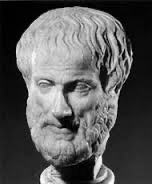The ancient Greeks understood a great deal about communication. They asserted and argued that the audience’s reception of messages and messengers depended in in certain ways on the perception of the listener. Of course, perception is not always reality, which is also something that the Greek sophists understood. That’s why their itinerant lessons in public rhetoric could include training on how to take and defend each side of an argument, which was something, by the way, that Socrates found rather unattractive.
However, the Greeks (Aristotle) identified certain qualities (or virtues) in a messenger and the appeal of persuasive communications that are worthy of our reflection. 
A great deal can be said about this, but here we intend to summarize a few things and then provide some links for further reference and study: when we speak of ethos of an orator or debater or the sort of appeal she is making, we are saying something of the character, honesty, or competency of the speaker to say something on this subject. In short, if your audience does not trust that you are qualified to speak on the topic you’re speaking on or if by your manner they do not feel comfortable trusting you generally, then chances are you will not be very persuasive.
The virtue of logos in a speaker or in a presented argument has to do with clarity, appropriateness of the evidence presented for the conclusion (and audience), and the intelligence the speaker displays.
And finally, pathos has to do with the “relatibility” of the speaker to his audience’s emotions. Does she appeal to shared values with her audience in a way that is appropriate for the circumstance?
Maybe the important thing to see is that all three virtues together are important for effectiveness and frankly while some of this can be “faked” we are not interested in that sort of “achievement.” Rather we prefer by the grace of God to live good lives, with good habits and dispositions, who have done our homework when we speak or write and relate to our audiences as flawed human beings, yet made in the image of God.
Links:
Summary of Aristotle’s Appeals